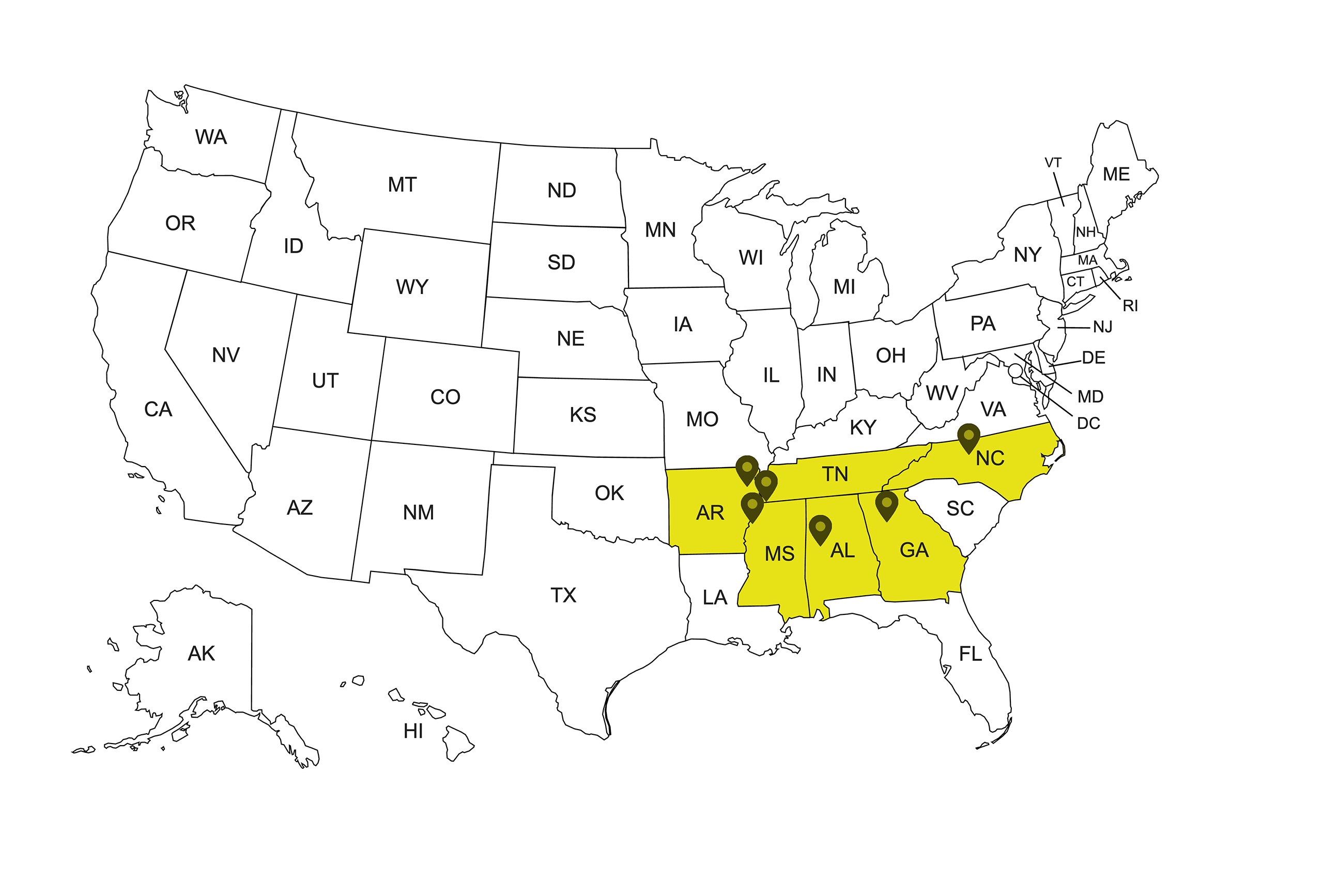
JFF Partners in Deep South to Improve Black Learner and Worker Experiences
October 23, 2023
At A Glance
Efforts to close the wealth gap between Black and white Americans have long been impeded by a host of discriminatory policies and actions. Across the U.S. today, Black workers experience a variety of disparities in labor market outcomes, from lower training completion rates to wage inequities to greater placement in jobs with minimal growth potential.
Given that the southern states are home to the highest concentration of America’s Black population, there is an urgent need to better understand the future of work and areas of opportunity for Black communities across this region. It’s just as critical to know more about how workers and learners in these communities are currently supporting their career aspirations and building social capital by leveraging the public workforce system, which includes American Job Centers, education and training programs, and service providers.
Last year, with support from the Walmart.org Center for Racial Equity via a grant from Walmart, Jobs for the Future (JFF) selected organizations in six states across the Deep South for an 18-month research program to identify exemplary behaviors, practices, or conditions that improve employment outcomes for Black workers and learners in their communities. Through this Workforce Communities of Inquiry (WCI) initiative, JFF equipped these organizations with a comprehensive suite of trainings, tools, and guidance to identify approaches, practices, and programs that have had positive outcomes for those within their communities. In addition to informing the participating local organizations, the insights gleaned from this research will help advance JFF’s workforce transformation strategy, which aims to amplify proven approaches for greater integration of community-based equity and inclusion strategies across the public workforce system.
The nation’s public workforce development system includes more than 550 workforce development boards and roughly 2,500 American Job Centers. These entities are supported by a network of education and training providers, faith-based and community organizations, employers, and local, county, and state agencies and service providers. Collectively, the local organizations in WCI include workforce development boards, workforce intermediaries, and community non-profits. They are mission-driven and committed to addressing the structural and systematic barriers to the economic advancement of Black people in their communities.
These organizations, which represent rural, urban, and suburban communities across the Deep South, are West Alabama Works (Tuscaloosa, AL), Alliance for Rural Impact (Harrisburg, AR), CareerRise (Atlanta, GA), Higher Purpose Co. (Clarksdale, MS), Piedmont Triad Regional Council (Kernersville, NC), and The Collective Blueprint (Memphis, TN).

"By participating in this important research effort, we hope to gain a deeper understanding of the ways in which systems, policies, partnerships, and behaviors influence workforce development outcomes regarding racial equity. The Workforce Communities of Inquiry initiative will allow our team to build off of our previous equity research to guide career and credential attainment strategies in the Piedmont Triad Region."
Jessica Raby, Workforce and Economic Development Assistant Director, Piedmont Triad Regional Council
Guided by insights and support from JFF and an advisory committee of leading workforce and economic development organizations, these practitioners-turned-researchers are facilitating honest, intentional, and focused conversations with a variety of stakeholders who use the services of the public workforce system. They’ve developed customized goals and interview questions that reflect their regional context and align with JFF’s broader research objectives. Using an asset-based research protocol, these organizations will help interview and focus group participants uncover strengths, advantages, or opportunities in their communities. To support this approach, JFF is providing organizations with comprehensive training, peer learning, and implementation support. Within the context of WCI, the objective is to identify what currently works well to meet the needs of workforce system customers by asking interviewees to reflect on positive experiences and outcomes.
“From the first time we heard about this opportunity, we were excited about the chance to understand better the people we serve. Currently, about 84% of the people we serve are Black and 60% are Black women. We welcome the chance to improve our effectiveness and impact in our region.”
Bob Johnson, Career Connect/Grant Programs, West Alabama Works
To help analyze these complex, qualitative conversations, WCI uses Fora, a combination of artificial and human listening intelligence powered by Cortico technology that distills key themes from recorded conversations, enabling organizations to highlight important perspectives from real people. Fora is devoted to engaging and amplifying under-heard voices to inform public dialogue, policy development, and decision-making.
With support and guidance from JFF’s Center for Racial Economic Equity, WCI will explore the systemic and societal factors that contribute to the persistent Black-white wealth gap and patterns of occupational segregation across the Deep South. It will examine how these communities can begin to break down institutional barriers that perpetuate racial inequality within their cities and towns.
“This initiative will contribute to the Center for Racial Economic Equity’s efforts to accelerate Black economic advancement by equipping workforce professionals to identify and address inequities in order to build a workforce system that better serves Black learners and workers.”
Michael Collins, Vice President, JFF
At the local, state, and national levels, this effort will lead to actionable insights and increased awareness of how workforce leaders can help design more effective programs and more human-centered environments and service models that lead to positive experiences for Black workers and learners. Based on their research, each community will develop a set of learning outcomes and recommendations for ways their organization can advance racial equity throughout their service areas. More broadly, JFF will work with our Center for Racial Economic Equity and other partners to leverage the collective insights of these organizations as we continue to drive and design equitable and inclusive workforce transformations nationwide. We’ll also look to expand and improve upon the WCI research model to dive deep into the lived experiences of other marginalized populations such as returning citizens, refugees, and immigrants.
Check back early in 2024 as our research concludes and we discover more about each community’s ambitions and insights for a more equitable, inclusive, and community-driven workforce system.
Related Content

JFF RISE Network Member Continues Planting Seeds of Opportunity: Comunidad Maya Pixan Ixim’s Holistic Approach to Immigrant Entrepreneurship
Comunidad Maya Pixan Ixim’s Holistic Approach to Immigrant Entrepreneurship

Bridging Military Experience to Manufacturing Careers: Insights from the Manufacturing Readiness LER Pilot
The Manufacturing Readiness LER Pilot is a collaborative effort by the Manufacturing Institute and their Heroes MAKE America program, Solutions for Information Design, Hire Heroes USA, JFF, and Walmart to harness the potential of learner employment records. Key Findings The pilot engaged 460…
